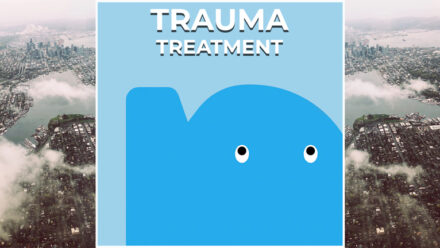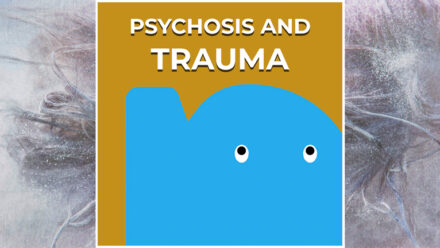
After a dramatic negative experience, you can develop psychological problems like depression and anxiety. Sometimes you notice this right away, sometimes only months or even years after. When the problems endure or get worse, it is important to get help.
What is trauma?
Trauma comes from the Greek word for ‘injury’ and refers to both physical and mental damage. A mental injury or damage is also called psychological trauma. When you read ‘trauma’ on our website, we always mean psychological trauma.
Trauma is an umbrella term and is understood in several different ways. People often associate ´trauma´ with very shocking events, like serious physical assault or sexual abuse. While these certainly are traumatic, trauma can in fact also be caused by any kind of event that has had a very serious impact on you, however big or small it may seem to others.
Not all bad experiences are experienced as traumatic. What particularly tends to cause trauma is when, at the time of the event, someone was feeling very threatened, got hurt or felt that (physical) boundaries were crossed. Such events are often accompanied by feelings of intense fear, powerlessness and hopelessness.
Post-traumatic stress disorder (PTSD)
After experiencing a shocking event, it is not uncommon for you to feel stressed and sad. And that you can’t stop thinking about what happened. If these problems persist for more than a month, it is called PTSD. Flashbacks, reliving the experience, and nightmares are the most common symptoms of PTSD. The bad memories keep coming back, even when you really do not want to think about it. This can make you feel sad or even desperate, keep you awake at night, and cause feelings of anxiety, anger or even aggression. Trauma and PTSD can also lead to psychotic problems like hearing voices and suspiciousness, and sometimes to full-blown psychosis.
PTSD problems are serious problems that can have considerable impact on how you can function in daily life. Professional treatment is necessary and can help you. EMDR (see below) is a well-tested treatment for dealing with the consequences of trauma.
Eye Movement Desensitization and Reprocessing – EMDR
EMDR is often the first choice of treatment for people with long-lasting problems after a traumatic experience. It is especially useful when problems have developed as a result of one particular event, and when thinking about this event still triggers unpleasant emotions.
EMDR treatment is typically brief. Studies show it is an effective therapy to which most people respond well. For treatment of “singular trauma” (caused by a one-time major event), usually three to five sessions are enough. When people have been through long-lasting negative events and are being treated for “complex trauma”, treatment usually takes longer.
The website of the British EMDR Association offers more explanation of EMDR treatment.
Trauma treatment and psychosis vulnerability
For far too long, people thought that trauma treatment was impossible when someone also had psychosis vulnerability. The common belief was that talking about trauma would make the psychotic problems worse. So there was little to no trauma treatment for people with a history of psychosis. We now know, thanks to research by the Dutch psychologist David van den Berg and his team, that trauma treatment can be highly effective for people with psychosis vulnerability.
In January 2017, David earned a PhD for his research into trauma treatment and psychosis (TTIP: Treating Trauma in Psychosis). In his dissertation he convincingly disproves the myth that people with psychosis vulnerability cannot be treated for their trauma. The closing advice of his dissertation: do not exclude people with psychosis vulnerability from conventional treatment and take the trauma backdrop into consideration in psychosis.
More about trauma treatment and psychosis is explained in this video (in Dutch, with English subtitles). You are also welcome to read Van den Berg’s dissertation (in English).
The exact relationship between trauma and psychosis is further explored here.




